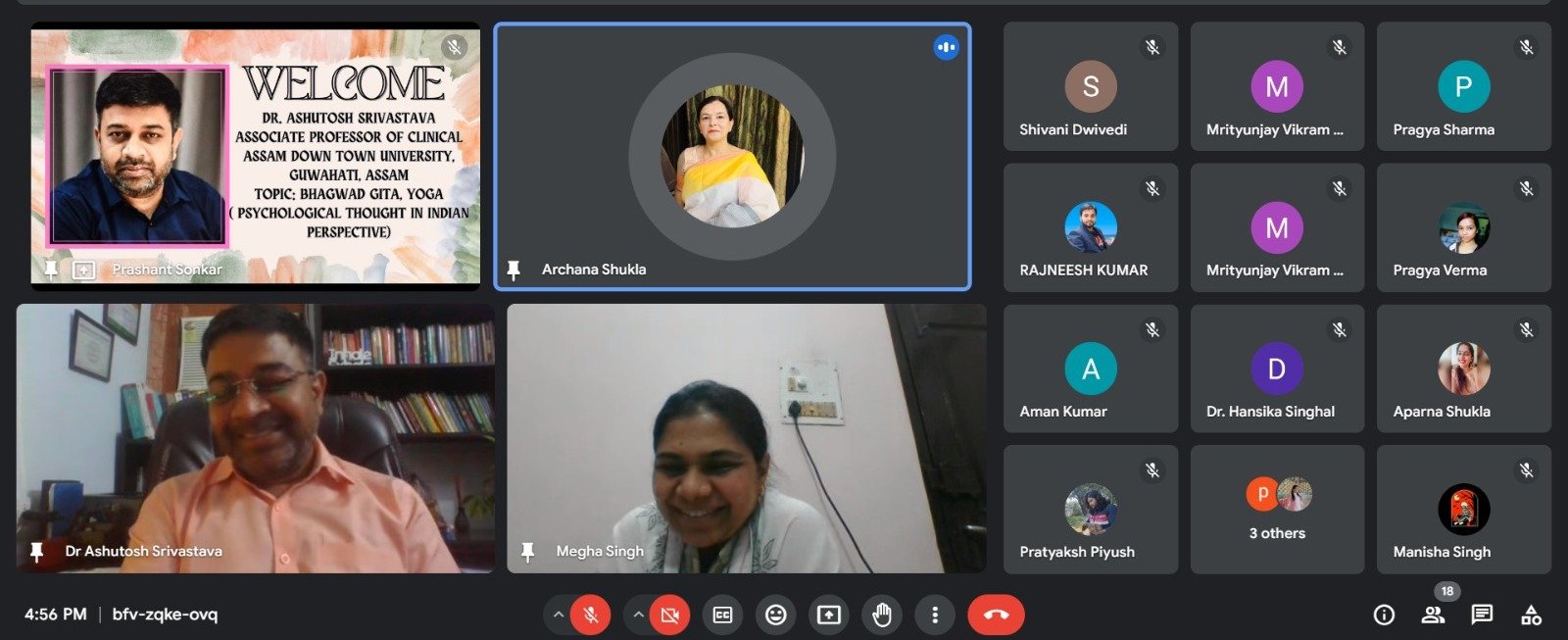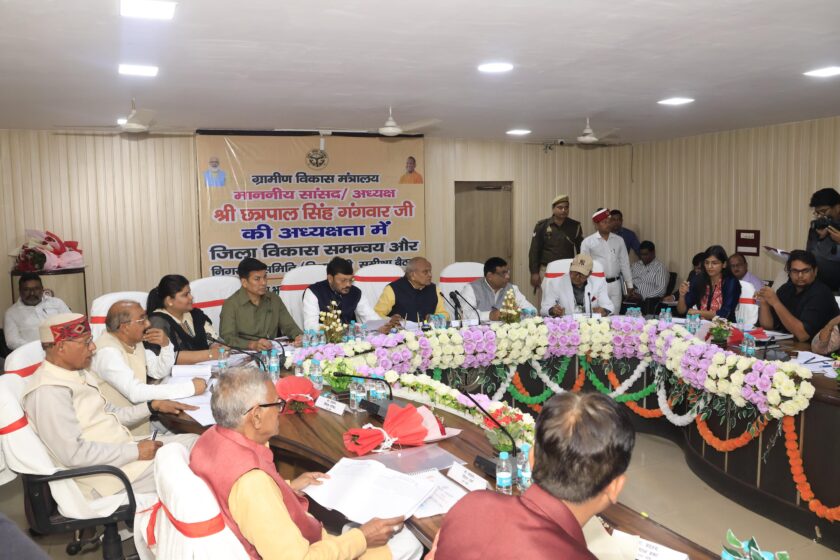Lucknow: The second last day of the UGC NET workshop, led by Dr. Archana Shukla, Head, Department of Psychology featured Dr. Ashutosh Srivastava, Associate Professor of Clinical Psychology from Assam Down Town University, Guwahati, Assam as the session speaker. His topic was “Bhagavad Gita, Yoga (Psychological thought in Indian perspective)”.
He began with stating that ‘The Bhagavad Gita’ offers deep insights into the working of the human mind and behaviour. He explained how the Gita addresses universal struggles like purpose and duty, using Arjuna’s dilemma and moral conflict as an example. Krishna’s guidance offers a “manual” for navigating the complexities of the mind. The core concepts of Indian Psychological thought i.e. Atman-Brahman, Dharma, Karma and Moksha were also covered by him.
The lecture also explored the importance of self-control, managing desires, and fulfilling one’s role or ‘dharma’ for inner peace and resilience. Finally, he summed up the session with the Gita’s paths to spiritual and psychological well-being, including Karma, Bhakti, Jnana, and Raja Yogas. These paths provide mental clarity, emotional stability, and moral integrity.
Prof. Madhurima Pradhan, former Head of Department, Department of Psychology and Founder – Director of Happy Thinking Lab, Lucknow University delivered the second lecture of the day on “Indian Psychology paradigm and its Implications”. She discussed the characteristics of Indian Psychology and its implications on education, health, interpersonal relations and various aspects of life. She also told that when the results of scientific research challenge the prevailing ideologies, the paradigm changes and how these changes are necessary for the development. Highlighting the need for a paradigm shift in Psychology, she discoursed how Indian Psychology can address personal and social problems. Its focus on self-awareness and well-being goes beyond what Western psychology offers, including finding meaning in life and dealing with suffering.

Indian psychology seems to answer those prevalent unanswered questions such as who am I? What is my relation with this entire universe? How can a person face his sufferings and sorrows and live a positive, joyful and peaceful life? By understanding the difference between mind, brain and consciousness, individuals can achieve greater awareness and fulfilment. Prof. Pradhan wrapped up her session by shedding light upon such questions and illuminating the importance of Indian psychology in day-to-day life.
The sessions began with the introduction of both the speakers by Dr. Hansika Singhal, Assistant Professor, Department of Psychology. Similarly, they were concluded with an expression of gratitude from Dr. Megha Singh, Assistant Professor, Department of Psychology. She also presented them with certificates of appreciation as a token of their contribution to the workshop.









